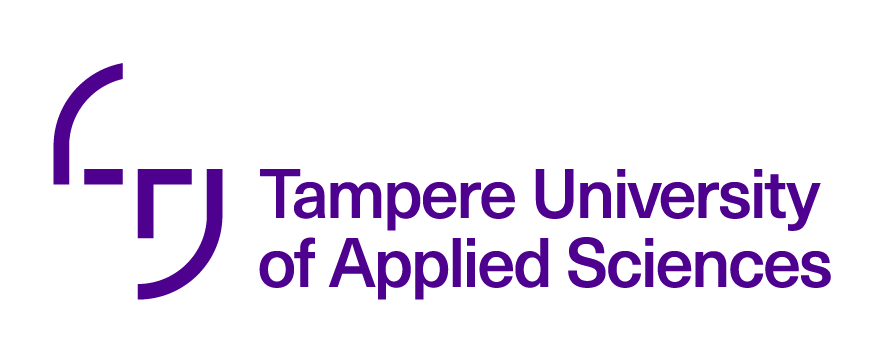Master's Degree Programme in Community Work and Multicultural Development
Tutkintonimike ja tutkinnon taso
Master's degree in Community Work and Multicultural Development,(University of Applied Sciences)
Hakukelpoisuus ja hakeminen
To be eligible to apply to TAMK’s Master’s Degree Programme in Community Work and Multicultural Development, an applicant most hold
One of the following UAS degrees completed in Finland:
Sosionomi (AMK)
Yhteisöpedagogi (AMK)
Geronomi (AMK)
Kuntoutuksen ohjaaja (AMK), or
One of the following diplomas from a Finnish vocational college (opistoaste):
Sosiaalikasvattaja or equivalent lähikasvattaja diploma
Sosiaaliohjaaja
Kehitysvammaisten ohjaaja or Kehitysvamma-alan ohjaaja
Sosiaalialan ohjaaja
Diakoni diploma that includes sosiaaliohjaaja training, or
One of the following degrees completed in Finland or equivalent degrees completed outside Finland:
Bachelor of social work / social policy / social psychology / social sciences / administrative sciences / arts (education).
In addition, the applicant must have a minimum of two years (24 months) work experience from a relevant field after completing the degree.
Ilmoittautumisaika
07.06.2023 - 30.08.2023
Ajoitus
01.08.2023 - 19.12.2023
Laajuus
5 op
Virtuaaliosuus
5 op
Toteutustapa
Etäopetus
Yksikkö
Community Work and Multicultural Development YAMK
Toimipiste
TAMK Pääkampus
Opetuskielet
- Englanti
Koulutus
- Master's Degree Programme in Community Work and Multicultural Development
Opettaja
- Timo Nevalainen
Vastuuhenkilö
Minna Niemi
Ryhmät
-
22MCOMMaster´s Degree Programme in Community Work and Multicultural Development
Tavoitteet (OJ)
Student
- is familiar with research and networking practices related to interprofessionalism and multifunctionality
- can construct and maintain multidisciplinary networks
- can utilize system theories in his/her own field
- can utilize futures studies’ research and methods.
Sisältö (OJ)
- Sociological systems theories
- Ecosystem interactions in a multi-professional community
- Application of system theories in one's own work environment
- Multi-professional dialogue, committing also to the values of the others
- Various targets for innovation
Arviointikriteerit, tyydyttävä (1-2) (OJ)
Satisfactory (1-2)
The student can define research and networking practices related to interprofessionalism and multifunctionality. He/she can name multidisciplinary networks and identify futures studies’ methods and the basics of system theories.
Arviointikriteerit, hyvä (3-4) (OJ)
Good (3-4)
The student can compare research and networking practices related to interprofessionalism and multifunctionality. He/she can construct multidisciplinary networks and apply system theories, as well as utilize futures studies’ research and methods.
Arviointikriteerit, kiitettävä (5) (OJ)
Commendable (5)
The student understands the functions of ecosystems in a multidimensional way and can apply system theories in his/her own work environment.
Arviointikriteerit, hyväksytty/hylätty (OJ)
Approved / Rejected
The objectives of the course have not been achieved; all aspects of the course have not been passed.
Aika ja paikka
05.09.2023 08.30 - 11.30 Online (Zoom Meeting): Introduction to the course module and its topics
03.10.2023 08.30 - 11.30 Online (Zoom Meeting): Multi-professional collaboration and dialogue
30.10.2023 12.30 - 15.30 Online (Zoom Meeting): Systems innovation and change
20.11.2023 12.30 - 15.30 Online (Zoom Meeting): Project presentations
Arviointimenetelmät ja arvioinnin perusteet
- Participation in online workshops 30%
- Active participation in collaborative project work 30%
- Personal learning diary 30%
Arviointiasteikko
0-5
Opiskelumuodot ja opetusmenetelmät
- Participatory online workshops (incl. pre-assignments and reflection)
- Reading assignments
- Collaborative project work
- Learning diary
Oppimateriaalit
Uhl-Bien, M., & Arena, M. (2017). Complexity leadership: Enabling people and organizations for adaptability. Organizational Dynamics, 46(1), 9–20. https://andor.tuni.fi/permalink/358FIN_TAMPO/176jdvt/cdi_webofscience_primary_000397689100002CitationCount
van Dijk, H., Meyer, B., van Engen, M. L., & Loyd, D. L. (2017). Microdynamics in diverse teams: A review and integration of the diversity and stereotyping literatures. The Academy of Management Annals, 11(1), 517–557. https://andor.tuni.fi/permalink/358FIN_TAMPO/176jdvt/cdi_webofscience_primary_000402085000014CitationCount
Varney, S. (2021). Leadership in complexity and change: For a world in constant motion. Walter de Gruyter GmbH. https://andor.tuni.fi/permalink/358FIN_TAMPO/176jdvt/cdi_econis_primary_1751050025
Opiskelijan ajankäyttö ja kuormitus
30 hrs Participatory online workshops (incl. pre-assignments and reflection)
30 hrs Reading assignments
45 hrs Collaborative project work
30 hrs Learning diary
TOTAL 135 hrs
Toteutuksen valinnaiset suoritustavat
Participation in online workshops and group project, and submitting the learning diary are mandatory.
Harjoittelu- ja työelämäyhteistyö
There will be visitors from international working life organizations in online workshops.
Kansainvälisyys
International visitors, drawing from the experiences of diverse international group of participants.
